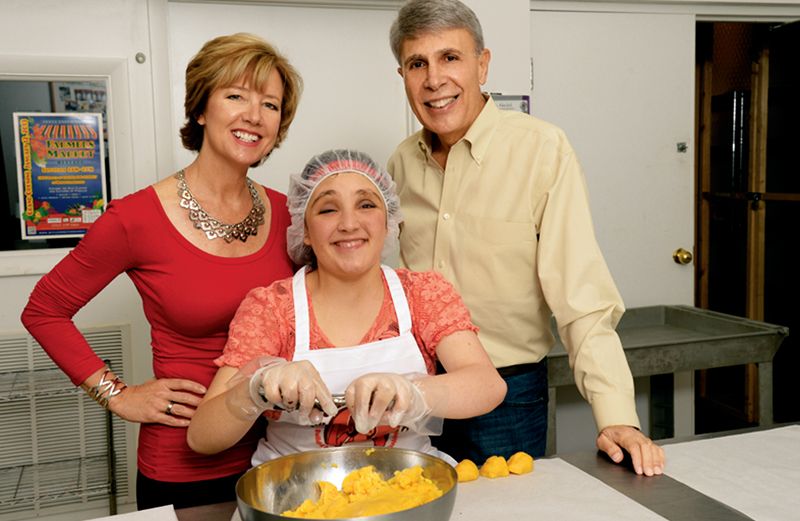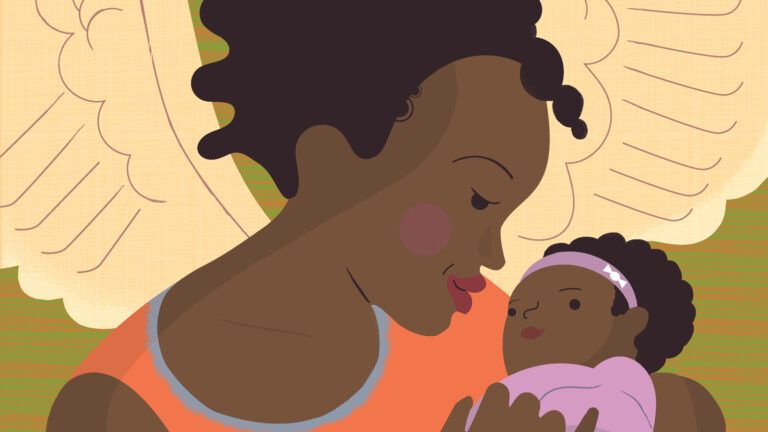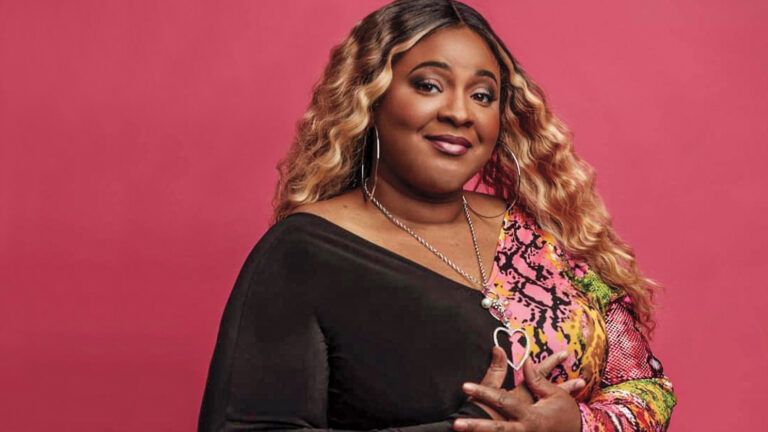In one year my daughter Casey was going to graduate from high school with a special-needs diploma. Her teachers had called my husband, Barry, and me to meet with them regarding Casey’s future.
When Casey was just three months old we were given a diagnosis for the laundry list of ailments she suffered from: severe hearing loss, dislocated hips, asymmetrical facial features, severe curvature of the spine and only one kidney. Casey was diagnosed with Goldenhar Syndrome.
There were many challenges in raising a special-needs child with an IQ of 62. But Barry and I were determined to give Casey the best life we could. No matter what her circumstances, Casey had a lot to offer the world. School had been a real struggle at times. But now she was almost ready to take the next step.
Barry and I sat down at the teachers’ meeting, open to suggestions. We’d been so focused on getting Casey through high school we hadn’t given any real thought to what she would do after her senior year. We just knew it had to be something she enjoyed, something that would give her a sense of accomplishment.
“We want to make sure you are aware of how few career opportunities exist for special-needs adults,” one of Casey’s teachers began. “Only a few are lucky enough to get jobs bagging groceries or folding towels at a hospital. Many, unfortunately, spend the majority of their lives at home with their parents.”
I didn’t know what to say. I knew Casey’s life after high school would be a challenge, but this was just a dead end.
Another teacher cleared her throat. “We just want you to be prepared.”
Barry and I walked to the parking lot after the meeting feeling hopeless. “I knew Casey’s opportunities would be limited,” I said as we got in the car. “But I thought she’d have something to keep her productive—to give her a purpose each day. Like school has done all these years.”
We knew she couldn’t go on to college or vocational school, but Casey needed to be active and she loved being around people. “Sitting in the house alone all day watching TV or listening to music is no life for her,” Barry said.
When we got home Casey was still up. She gave me a big hug when I walked in the door. “Did you have dinner, honey?” Barry asked her, kissing Casey on the forehead.
“Yes,” Casey said. “I just didn’t want to go to bed without telling you good night.”
She’s such a sweet girl, I thought. We have to come up with a good plan for her future. She deserves that.
“Let’s get creative,” I said when Barry and I got into bed. “For Casey’s sake. She needs a life of purpose, one she can be proud of.”
Barry and I knew better than anyone how important that was. We’d built our own internet jewelry business from scratch. The early years were a struggle, but the satisfaction we got from our work made it all worthwhile.
Casey can’t start her own business, I thought as I drifted off to sleep. God, help me find something that’s right for her.
Months passed. Barry and I couldn’t come up with any concrete solutions. In the spring Casey stayed with a caregiver while Barry and I went out of town to a jewelry trade show. It was good for us to get away and recharge. We’d just been going around in circles on what to do about Casey.
After a long morning viewing products and talking to suppliers, we slipped away for a quick lunch. “Remember our first jewelry show?” Barry asked.
“Of course,” I said. “Ten years ago.”
Our business was just getting started then. According to the rules of the trade show, we weren’t even big enough to attend. But we bought two plane tickets to Las Vegas anyway. “If God wants us to make this business a success he’ll find a way to open doors for us,” I’d told Barry on the plane.
Sure enough, the attendants at the front desk let us in because their manager wasn’t available to check our credentials! The contacts we made at that show were crucial in growing our business. Barry was able to leave his regular job as a software consultant and come on as a full-time partner with me.
“When Casey started public school,” I reminisced, “I needed a new project—just like Casey will when she graduates. If I started my own company back then, why can’t I start one for Casey?”
Barry thought about it. “We could certainly launch a company and help run it. We could hire a good manager. But what kind of company? And what would Casey’s role be?”
I didn't have all the answers, but I knew we were on to something. By the time we boarded our plane home from the trade show, we were committed. The company—whatever it was—could employ other special-needs adults. But the product would have to be special too.
“A kitchen-based business would create a lot of little jobs, jobs that almost anyone with a disability could perform,” Barry said.
“Casey and I love to bake cookies together,” I said. “Why don’t we call the business Casey’s Cookies!” With the name alone our new company seemed to come to life. We couldn’t wait to tell Casey.
Barry and I funded the initial startup costs and got down to business as soon as Casey graduated.
Just like the jewelry business, there were a lot of challenges: finding a good, affordable commercial space; developing recipes that made Casey’s Cookies competitive in the marketplace; and, naturally, preparing Casey for her new career.
“What if I don’t know what to do?” Casey asked me the first morning we drove into work together.
“We’ll figure this out together,” I said. “Papa and I didn’t know anything about the jewelry business when we started, but we managed, and so will you.”
“Will it be like when you and I bake cookies at home?” Casey asked.
“Pretty close,” I said. “Only your friends from school will be there to help us.”
“Right!” Casey said, her eyes lighting up.
Casey’s Cookies started out with just three employees: Casey and two of her former classmates. Orders were slow at first, until angels spread the word of what our nonprofit was all about.
Reporters at local newspapers and television stations picked up the story. CNN did a segment on Casey’s Cookies, giving us national recognition. Local businesses helped by making a point of patronizing Casey’s Cookies.
We sold cookies in hospitals and coffee shops, to schools and doctor’s offices, and online at caseyscookies.org. Grant money helped make ends meet. Now we employ seven people—five of them with special needs—and we make eight different kinds of cookies.
Casey has the life we always dreamed of for her. A life full of purpose. And full of angels too.
Download your FREE ebook, Angel Sightings: 7 Inspirational Stories About Heavenly Angels and Everyday Angels on Earth





